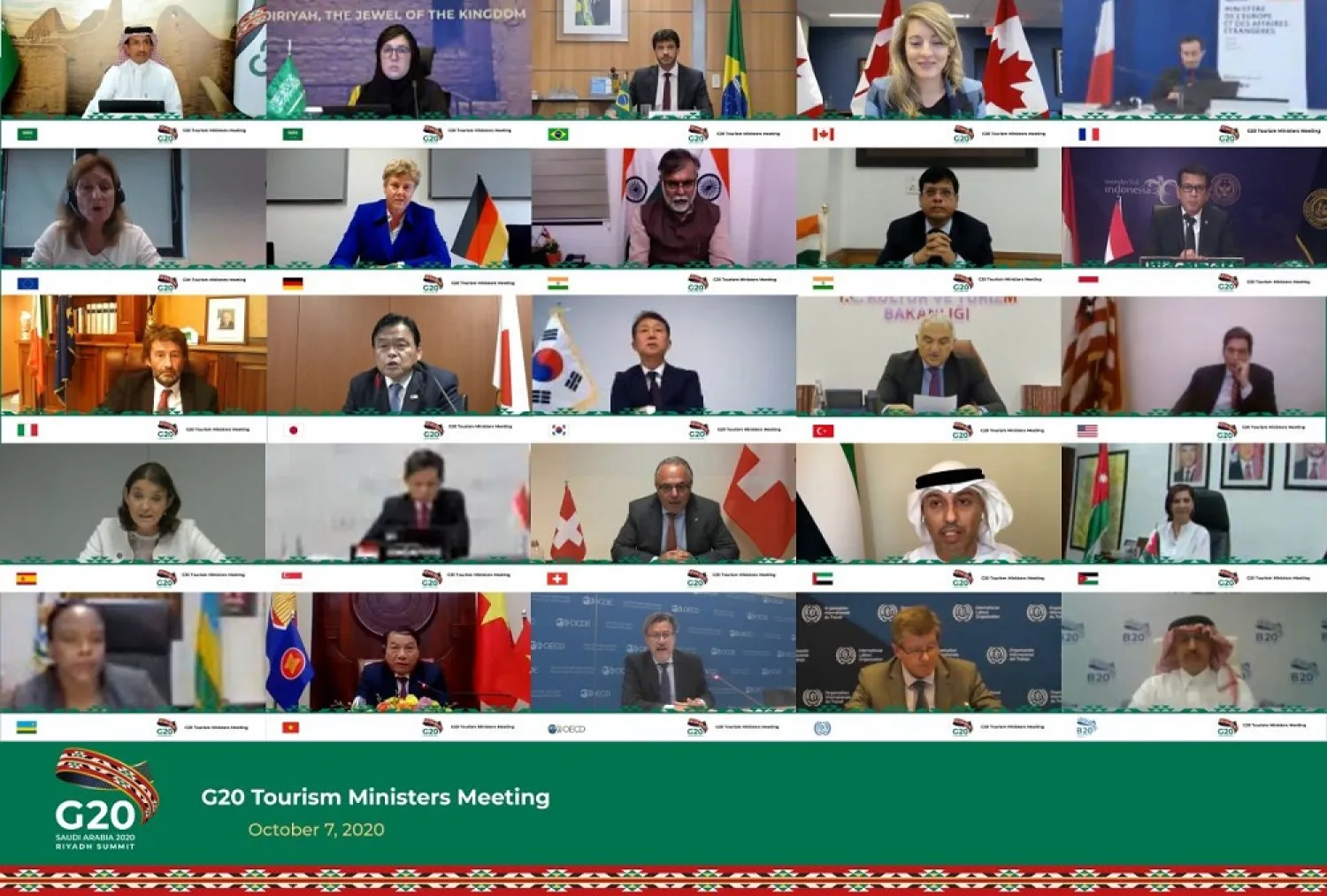Saudi Arabia hosted last week the G20 Leaders Summit as tourism throughout the world is enduring its worst ever crisis due to the novel coronavirus pandemic.
The outbreak has led to global economic recession, crippled transportation and lockdowns have struck at the very core of tourism.
Realizing the danger, the leaders of the G20 countries sought to revive the sector, underscoring its economic importance and employment of hundreds of millions of people throughout the world. Estimates at the beginning of the pandemic showed that 75 million jobs in the travel and tourism sectors were at risk.
Given that tourism and travel make up nearly 10.3 percent of the world’s GDP, Saudi Arabia, as G20 president, sought since the beginning of the pandemic to support efforts to revive these sectors. It exerted efforts to push forward economic revival as the outbreak began to weaken.
The G20 Leaders' Declaration addressed the tourism and travel crisis, with members expressing their commitment “to ensuring that global transportation routes and supply chains remain open, safe and secure, and that any restrictive measures related to COVID-19, including for air and sea crews, are targeted, proportionate, transparent, temporary and in accordance with obligations under international agreements.”
“We will continue to explore concrete ways to facilitate the movement of people in a way that does not impede our efforts to protect public health,” they added.
“We will continue our efforts in collaboration with stakeholders, including the private sector, to facilitate the travel and tourism sector's recovery from the pandemic. We welcome the Tourism Community Initiative as a catalyst of sector recovery, including the creative economy,” they continued.
“We endorse the G20 Guidelines for Inclusive Community Development through Tourism and encourage the use of the AlUla Framework for Inclusive Community Development Through Tourism that aim to create jobs, empower local communities, especially rural, safeguard the planet, and preserve cultural heritage. We also endorse the G20 Guidelines for Action on Safe and Seamless Travel and welcome the establishment of the G20 Tourism Working Group,” they declared.









